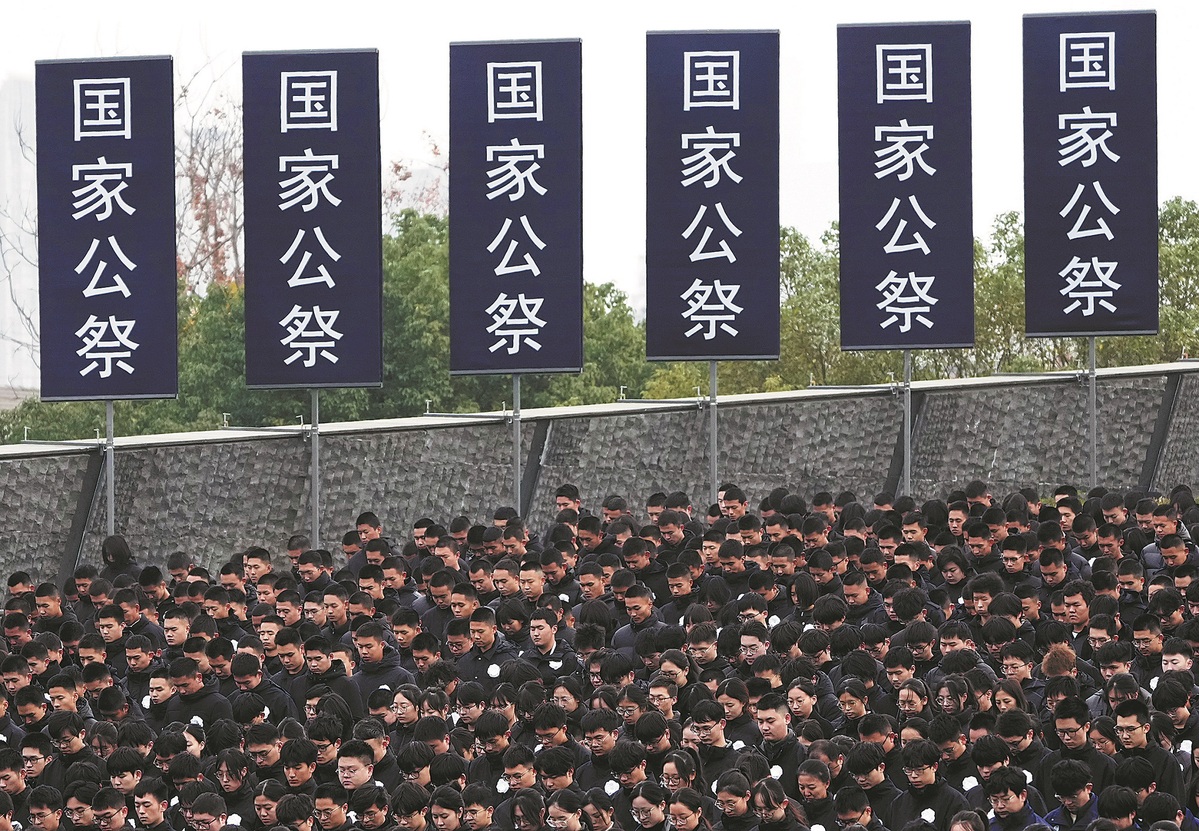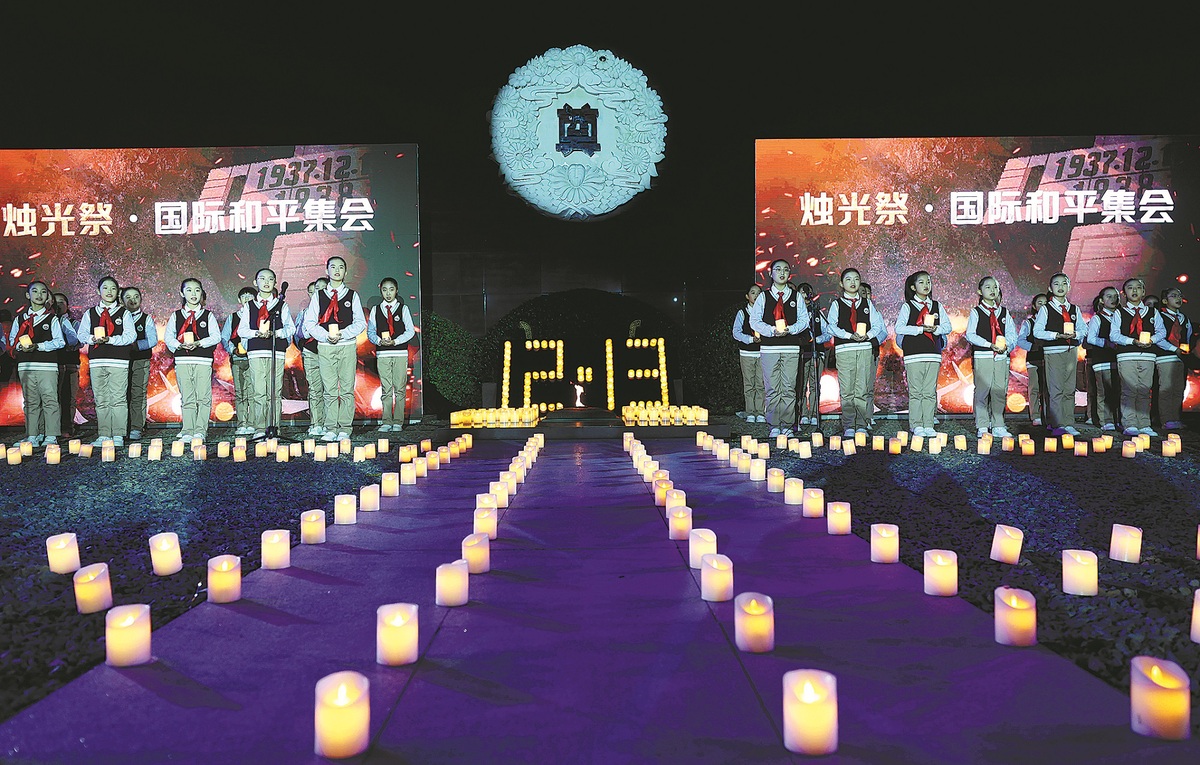
People attend a national memorial ceremony for the victims of the Nanjing Massacre on Wednesday during the 86th anniversary of the atrocity in Nanjing, Jiangsu province. [Photo by Gao Erqiang/China Daily]
By Cang Wei in Nanjing
Solemn ceremony remembers past atrocity with hope of peaceful future
Nanjing, Jiangsu province, was the focal point of a national ceremony commemorating the 300,000 victims of the Nanjing Massacre on Wednesday, the 86th anniversary of the start of the murderous rampage by invading Japanese troops in 1937.
At 8 am, the Memorial Hall for the Victims of the Nanjing Massacre by Japanese Invaders conducted a flag-raising and half-mast ceremony in honor of the victims. At 10:01 am, sirens were heard above the city. Vehicles halted and people on the streets observed a moment of silence.
In the square of the memorial hall, representative citizens struck the Bell of Peace, and white doves were released into the sky. About 8,000 people from many walks of life, dressed in somber, dark attire, looked on.
Japanese troops captured Nanjing on Dec 13, 1937, and proceeded to kill more than 300,000 civilians and unarmed soldiers over a six-week period.
Li Hongzhong, vice-chairman of the National People's Congress Standing Committee, said at the memorial ceremony that people gathered to deeply mourn the innocent victims of the Nanjing Massacre, the compatriots who were brutally killed by Japanese aggressors, the revolutionary martyrs and national heroes who sacrificed their lives for the victory in the War of Resistance Against Japanese Aggression (1931-45), and the international soldiers and friends who sacrificed their lives fighting alongside the Chinese people.
We express the Chinese people's unwavering desire for peaceful development, declare that the Chinese people will always remember history and not forget the past, cherish peace and create a better future, said Li.
Lu Hanlei, a student from Zhonghua Middle School, led more than 80 students in reading a declaration of peace during the ceremony. He said he believed that today's rites were not for remembering past hatred but for cherishing peace.

Children attend a candlelight assembly on Wednesday to mourn the deceased and pray for peace on the 86th anniversary of Nanjing Massacre in Nanjing, Jiangsu province. [Photo/China News Service]
"I hope that I can contribute more to the country's prosperity and the world's peace when I grow up," he said. "I also hope that more students will share my wish and make their own efforts."
Lu Zhaoning, a Chinese-American collector, donated historical materials related to the massacre to the memorial hall. As one of the strikers of the Bell of Peace this year, he said the sounds stood for a remembrance of the past, cherishing peace and ensuring that history will never repeat itself.
"History is getting further away from us with each passing day," Lu said. "I will continue to collect historical materials related to the Nanjing Massacre. We will have regrets if we don't explore and preserve them now."
In 2014, China's top legislature designated Dec 13 as the national memorial day for the victims of the Nanjing Massacre.
Since 2014, the number of visitors to the memorial hall from around the world has exceeded 8 million people annually. Even during the pandemic, the average number of visitors per year remained over a million, according to the memorial hall.
When the wailing wall of the memorial hall was established in 1995, it originally had on it the engraved names of 3,000 victims. Over the past 28 years, it has undergone several additions and the number of names has increased to 10,665.
While tangible documents and other relics establish an indisputable historical record, survivors of the horrific atrocities have also stepped up to testify about what they experienced in those awful days.
But with time and old age, fewer of their voices can be heard. Many have died; only 38 eyewitnesses are alive today.
Guo Juncontributed to this story.









